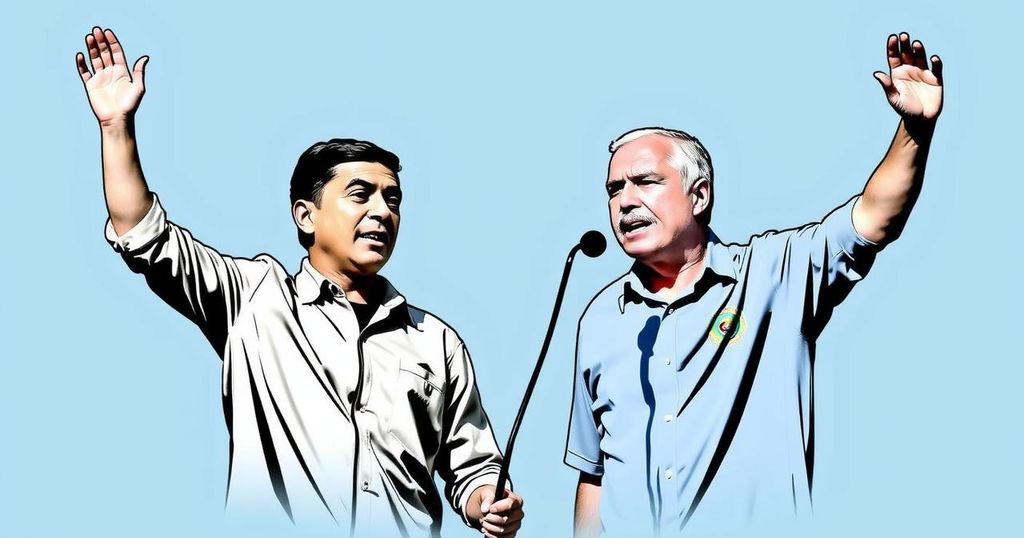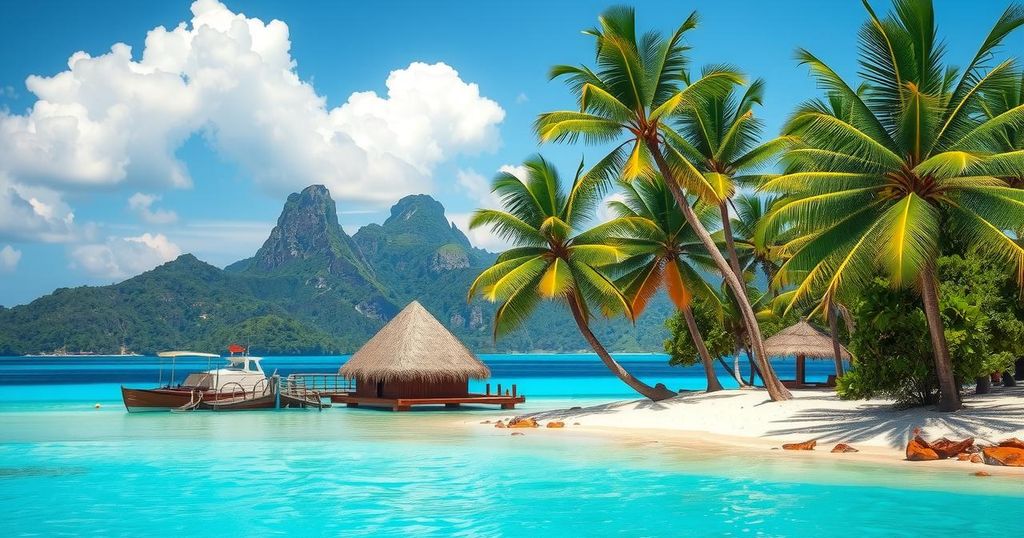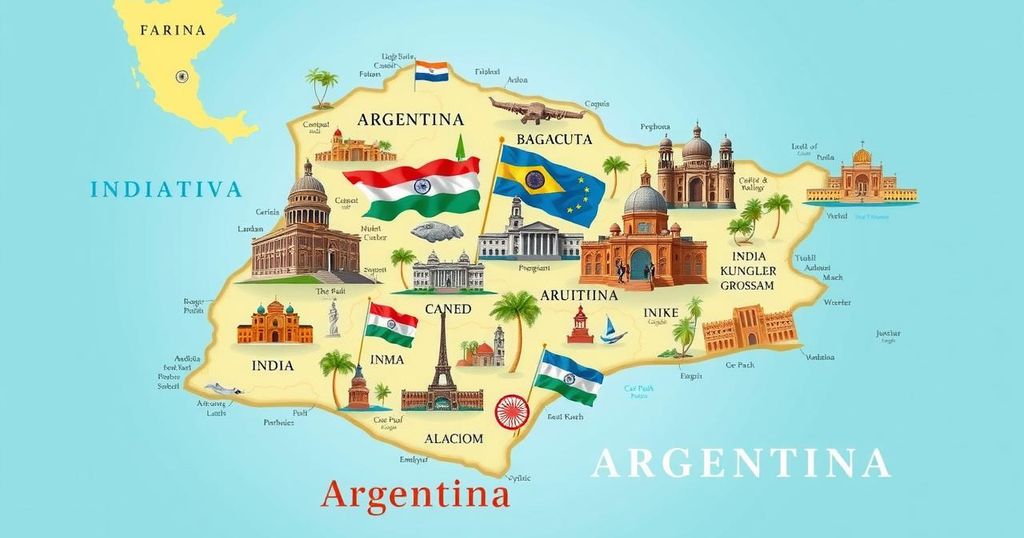Uruguay Faces Tight Presidential Election: Orsi vs. Delgado
Uruguay’s presidential runoff on Sunday features Yamandu Orsi, a center-left candidate, versus Alvaro Delgado, a continuity conservative, in a tightly contested election. Opinion polls show a narrow race with both candidates striving to attract undecided voters. Economic stability may influence outcomes amid global dissatisfaction with incumbents, while the absence of an absolute majority complicates the political landscape.
In the final rounds of a crucial presidential election on Sunday, voters in Uruguay will decide between two moderate candidates, Yamandu Orsi and Alvaro Delgado, in an environment characterized by relative political calm compared to separate right-left tensions in neighboring South American countries. Orsi, representing the opposition center-left, aims to lead with a modern approach after securing nearly 44% of the initial votes, while Delgado, a continuity conservative, has garnered support from a coalition that includes the influential Colorado Party. This election, taking place in a country of approximately 3.4 million inhabitants, is anticipated to result in a tightly contested race, with opinion polls indicating a remarkably narrow margin potentially influencing the final outcome.
Both candidates have refrained from making significant pledges in the waning weeks leading up to the election, seeking to capture the attention of about 8% of voters who previously backed smaller parties or those who abstained in October’s elections. The closing of ballot stations at 7:30 p.m. local time will lead to an initial tally of results by 9:30 p.m. in a race where neither coalition commands an absolute majority in the lower house, underscoring the complex dynamics of this electoral period.
Analysts suggest that while widespread economic discontent has resulted in decreased support for incumbent parties globally, Uruguay’s robust economy could swing voter favor towards Delgado, who is advocating for the re-election of what he perceives as a competent government. The outcome of this election will not only determine the next president but also reflect larger trends in South America’s political landscape.
Uruguay, known for its progressive policies and stable political system, is undergoing a pivotal presidential runoff between two moderate candidates that encapsulates a larger regional trend of political polarization. The election takes place in the context of heightened global dissatisfaction with incumbent governments, primarily due to inflation and rising living costs. However, Uruguay’s unique political atmosphere, with significant overlap between conservative and liberal factions, positions the country apart from its neighbors, making voter sentiments particularly intriguing as analysts monitor whether national trends align or diverge from the global narrative. The dynamics of this election are compounded by the absence of an absolute majority in the lower house, resulting from the previous electoral round, which has led to intense campaigning aimed at capturing undecided voters, particularly from smaller parties and those who did not vote in the earlier election. The political backdrop is one of increased interest in economic stability and government performance, with both candidates emphasizing continuance and gentler ideological shifts instead of radical changes.
The upcoming presidential election in Uruguay positions Yamandu Orsi and Alvaro Delgado in a contest marked by narrow margins and moderate platforms. As both candidates attempt to assess and persuade undecided voters while navigating a complex political landscape, the election will not only influence domestic policy for the next term but will also provide insights into the regional political climate amidst a global trend of decreasing support for incumbent parties. Voter turnout and preferences in this runoff will be crucial in shaping Uruguay’s direction.
Original Source: www.ndtv.com




Post Comment